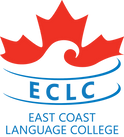English
for Parents
English for Parents (EP) is a three-level program aimed at providing parents of school-aged children with solid foundational English. In addition, EP helps parents learn the everyday English they need to thrive in Canadian society. Each level in EP takes 15 weeks to complete and includes 20 hours of class time per week. Every Friday, students take part in a workshop which focuses on naturally and accurately using English in various situations students may encounter in Canada. Using different themes, the students will be given opportunities to practice the new language through role plays, discussions, presentations and outings.
Skills
Each level of the program focuses on increasing students’ abilities in listening, speaking, reading, and writing. By integrating new vocabulary and grammatical structures, students will be able to communicate accurately and fluently in any environment in which English is necessary.
English for Parents
Workshop Topics:
-
Communicating with your child’s school and teacher
-
Understanding Canadian mannerisms and etiquette
-
Talking about common health issues and going to the pharmacy
-
Understanding Canadian currency and banking
-
Getting around (public transportation, renting a car)
-
Requesting goods and services (phone, internet, power, gas)
-
Talking about food and fashion
-
Making appointments
-
Talking about housing (renting, garbage disposal)
-
Joining extra-curricular activities
-
Learning about Canadian traditions, customs, and holidays
-
Understanding Canadian government, laws and policies
Study Length: 15 weeks per level
Levels: 100, 200, 300
Hours: 9:30 - 14:00 Mon - Fri (20 hours / week)
Start Dates: September 7, 2023 | October 12, 2023 | January 4, 2024 | February 7, 2022; see recommended start dates
Levels and Description
EP 100 focuses on essential English skills such as making greetings and introductions; asking for and giving personal information; describing activities and daily routines; expressing opinions, agreement and disagreement; talking about interests and abilities; discussing likes and dislikes; talking about food and ordering in a restaurant; talking about the past; making future arrangements; describing people’s appearance and personality; making suggestions and offers; talking on the phone in different situations.
EP 200 builds on the skills learned in EP 100 and includes topics such as expressing feelings and emotions; agreeing and disagreeing with others; describing present and past events and special occasions; discussing opinions about image, appearance, and fashion; making requests and asking permission; talking about hopes, dreams and achievements; describing an area and asking for and giving directions; discussing problems and solutions; asking and talking about accidents and illnesses; discussing hypothetical situations; talking about brands and products; managing conversations about money.
EP 300 expands upon the skills learned in EP 200 and focuses on topics such as comparing places and making recommendations; talking about achievements and experiences; communicating plans, intentions and ambitions; discussing consequences of future actions; reporting what is said and telling stories; asking and answering questions about culture and the media; describing and discussing customs and social norms; explaining how something works; talking about social and moral problems; giving arguments for and against controversial issues; describing feelings and reactions.
Placement test on the first day
If tested into higher
levels, student can choose
to take EP or EC
Student must provide
vacation schedule based on
children’s schedule
Workshop topics
-
Communicating with your child’s school and teacher
-
Understanding Canadian mannerisms and etiquette
-
Talking about common health issues and going to the pharmacy
-
Understanding Canadian currency and banking
-
Getting around (public transportation, renting a car)
-
Requesting goods and services (phone, internet, power, gas)
-
Talking about food and fashion
-
Making appointments
-
Talking about housing (renting, garbage disposal)
-
Joining extra-curricular activities
-
Learning about Canadian traditions, customs, and holidays
-
Understanding Canadian government, laws and policies
Time Table
Class
Class
Class
Class
Class
Lunch
Monday
Tuesday
Wednesday
Thursday
Friday
9:30 - 11:30
11:30 - 12:00
12:00 - 14:00
Class
Class
Class
Class
Workshops
Lunch
Lunch
Lunch
Lunch


